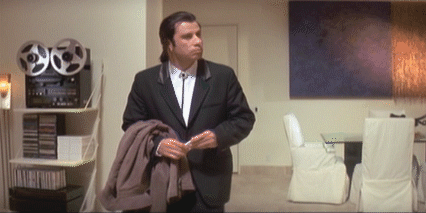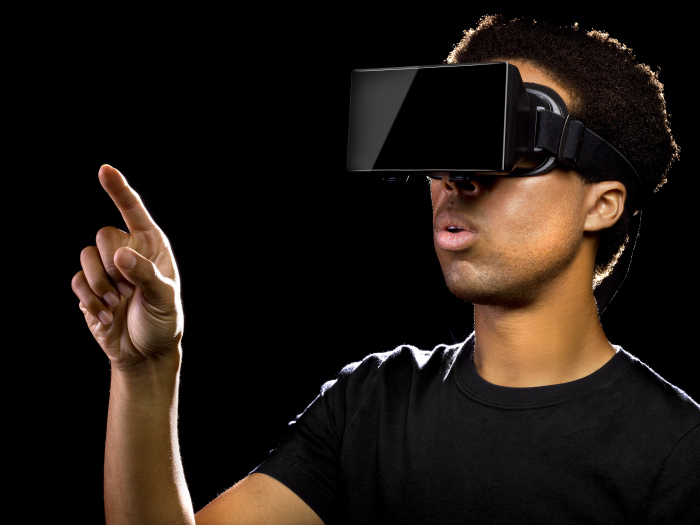
At the end of the year, all manner of experts spend some time to determine – most often wrongly – what the big trends will be in the upcoming year. We are no exception to this, and this is why we had a session in December 2015 to determine 16 Tips and Tricks to prepare for 2016. Here are my tips, let me know yours…
1) Constant crisis communication
The events of the end of 2015 created a feeling of a crisis, but also a sense that these crises don’t really have a beginning or an end. In Brussels, the population was told after the Paris attacks that the threat level was raised to ‘Level 4’ – clear and present danger (at least, this is how I understood it), and then it was brought down to 3. However the feeling in the population, press and social media was that nothing specific really happened between one level and the other. The reality is that we now live in a world where the threat of terror is quasi-permanent. This will give us a sense of emergency, but one that we will also start seeing as normal. So we will be living an age of constant crisis – but we will also need to redefine what a crisis really is, when it begins and – if ever… when it ends.
2) #Hashtagsarethenewheadlines

In recent times, certain hashtags take over Twitter and start trending globally. But beyond a simple series of words that describe an event, they become the story. The choice of words, the ones that end up dominating the news cycle end up shaping our perception and are a reaction to the event. This was the case after the Charlie Hebdo attacks (#jesuischarlie), the Paris attacks (#prayforparis), the Brussels crisis (#brusselslockdown). This is a fascinating phenomenon that will drive our perception of the news, and will be a new way for people to shape the news: the new headlines will be crowdsourced.
3) More Mobile Marketing
Mobile will continue to grow in importance and increasingly become our first point of entry to the web. For the first time, more people accessed the web through a mobile device rather than their desktop. This has profound implications for communicators who will need to think about how the mobile – which will continue to increase in importance – is really how the digital experience of people everywhere will unfold.
4) The future will be Periscoped
There is an increasing number of services that allow anyone to broadcast a live video stream from a mobile device to anywhere in the world. This was the case for YouTube, but in 2016, Facebook will open its streaming service to more people (still not sure who or when) and Twitter’s Periscope will continue to grow. This is proving an interesting ‘live window’ into the world and will provide communicators with simple and low-cost ways of sharing content and events with the world.
5) Images will continue to speak louder than words

Perhaps slightly contradicting my point about hashtags being the new headline, images continue to spread faster than words. It is easier to digest through our ever shorter attention span, so images, photos, animated gifs and videos will continue to grow in importance. As a communicator, this means becoming a better photographer, photoshopper, designer…
6) Facebook is the new mass media
Facebook continues to dominate our lives, and as it becomes an established channel of communication people are starting to realise that Facebook is really the new mass media. However unlike mass media, Facebook can be carefully targeted at specific audiences using cities, age groups, hobbies. As Facebook becomes bigger, it also becomes less young and less attractive to the younger tech savvy crowd. Young millennials are gradually shifting away from the channel as their parents and grandparents are beginning to dominate it.
7) Facebook will make the virtual world real

In 2014, Mark Zuckerberg announced that Facebook acquired Oculus; a company that makes a device that will enable us to see the world through Virtual Reality goggles. Many were – and still are – puzzled about the connection between Facebook and VR, however, we must assume that Zuckerberg is no fool and that he had something in mind when he decided to pay 2 billion dollars for this acquisition. This year as the Oculus Rift headset is launched to the public, we will find out whether we will be liking each other through VR glasses, or whether this will be another failed attempt to keep our kids away from daylight and off the streets.
8) Privacy will matter more and we will care less
Privacy is a huge issue in the political world of Brussels and beyond. Listening to the conversations around data protection and privacy it seems that the world is coming to an end depending on which legislation is passed by various institutions. This debate, however, goes largely unnoticed by the public. As politicians raise the critical issues about privacy, consumers will continue to give away their data in exchange for services and even though they will be vaguely aware that they are probably giving away too much, they will continue to do so because convenience and speed seem to be worth it.
9) We will continue to be scared of the creepy factor
As technology gets to know us better and the Internet of things becomes a reality, we will observe some technology intrusions that will fascinate and disturb us. When Google now tells us that it is time to leave for our flight or go home because traffic is building up we will feel impressed and then wonder why we are told something we never asked. The intimacy of some of the services that will emerge in 2016 will disturb us and some of these – like the Google glasses – will die. But they will be reborn in more acceptable forms until we eventually succumb to them.
10) Permission marketing will be back
When Seth Godin announced in 1999 that permission marketing will be the new marketing, most people embraced the idea but were not quite sure how to go about it or implement it. Fast forward 17 years, digital marketing is everywhere, our privacy is threatened, the creepy factor is back. Marketers will retrieve their old books on their new kindles and realise that the more permission they get from their audience, the more effective their marketing will be.
11) Get your digital self up to date or risk professional oblivion
As the economy slowly recovers, the job market will remain fluid and fragile. As job seekers look for new opportunities their digital profile will carry far more weight than any form of CV. What you write on LinkedIn, Facebook or Twitter is far more a reflection of who you are in 2016 than any formal way of presenting yourself. Start refreshing your digital profile and keep it current – you never know when you might need it.
12) Digital marketing will just be marketing
This shift has been happening over the past decade, but now the indicators are clear. Digital marketing is no longer a ‘channel’, or a ‘social strategy’, it is marketing. It will become increasingly clear to communication professionals everywhere that digital marketing is simply marketing. You need one integrated strategy, and digital is the most effective place to ensure this integration at a global and tactical level. This recognition will not, however, mean that marketing organisations will have adapted themselves yet. But we should be prepared for a shift towards digital strategy leading marketing and communication programmes.
13) Creative meets digital: let the war of ideas begin
As digital marketing becomes marketing, some traditional concepts will make their appearance in this new approach. The importance of a strong creative concept at the core of every communication campaign is well known to the advertising world – sometimes described as the Big Idea. This will become the starting point of digital campaigns and digital agencies will need to learn how creativity is not just about technology but also about the concepts that create change.
14) Brussels goes digital
The slow and conservative world of Brussels will continue its inexorable shift towards digital both as tools and as policy priorities. Silicon Brussels, however, will be nowhere to be seen, but tweeting will become less embarrassing and more politically respected. The digital geeks will meet the political geeks and will drive policy change.
15) European Existential Exploration
The EU will be more confused than ever about its own role and the purpose of its mission. With the Euro crisis followed by a migration crisis and the British Referendum, there will be a lot of soul searching and deeply questioning about the Why of the EU. No easy answers will emerge but an intense discussion will affect pretty much everyone.
16) Cats will be the new Black Swan.
Watch the Slideshare below












